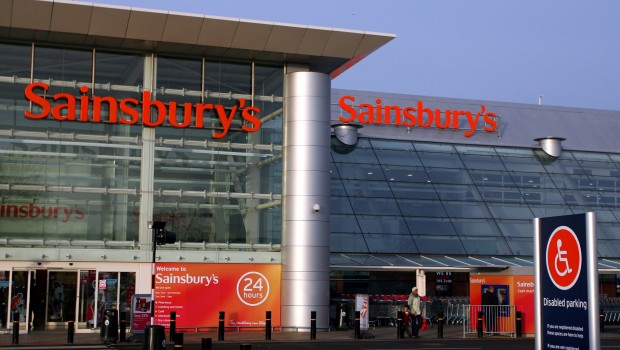Sainsbury's warns on profits as cost-of-living crisis, inflation bite

UK supermarket chain Sainsbury's warned of lower profits this year due to the impact of the cost-of-living crisis on consumers' disposable income and inflationary pressure.
Food & Drug Retailers
4,446.57
17:14 20/12/24
FTSE 100
8,084.61
17:04 20/12/24
FTSE 350
4,463.29
17:14 20/12/24
FTSE All-Share
4,421.11
17:04 20/12/24
Sainsbury (J)
270.20p
16:55 20/12/24
The company on Thursday forecast underlying pre-tax profit of £630m - £690m in full-year 2022/23 as it posted a £730m profit last year, up 104% on the prior 12 months driven by grocery and fuel sales. Sainsbury’s increased its dividend to 9.9p, bringing the final dividend to 13.1p-a-share, almost a quarter higher than last year.
“The year ahead will be impacted by significant external pressures and uncertainties, including higher operating cost inflation and cost of living pressures impacting customers' disposable incomes,” the company said.
Last year's results were boosted by £100m in higher grocery sales during the Covid pandemic. In January Sainsbury's raise guidance to “at least £720m” of pre-tax profits after a bumper Christmas sales period.
Group revenue for the year rose 2.9% to £29.9bn. On a statutory basis, pre-tax profits jumped to £854m compared to a £164m loss last year and £278m profit in 2020, on the back of lower Covid costs and restructuring charges.
Annual grocery sales fell by 0.2% against tough comparisons and a weak performance at Argos, where sales were down by 20% in the final quarter. Clothing sales were up 12.7% and fuel sales rose by 60% as people drove more after pandemic lockdowns.
The sector is under pressure, with Tesco, Morrisons and the Co-operative Group all issuing warnings about the economic outlook as a combination of the cost of living crisis and supply chain disruption due to the war in Ukraine his prospects.
UK consumers are feeling the pinch after a promise-breaking tax rise by Finance Minister Rishi Sunak took effect this month, along with benefit cuts, rampant inflation, wages falling in real terms and the ongoing impact of Brexit cause the biggest squeeze on household incomes in 70 years.
Sainsbury's said it continued “to inflate behind competitors on the products customers buy most often”, meaning it would raise prices later than its rivals, or at a lower rate. Last week the chain lowered prices across 150 of its highest volume fresh products.
"The penny pinching may hit where it really hurts for Sainsbury’s as it has had real success selling its premium Taste the Difference food and it boasts that TU clothing is now a $1bn brand. Sales for both ranges have increased sharply but gourmet tastes and wardrobe tops ups may well be among the first to go as the cost of living crisis intensifies," said Hargreaves Lansdown analyst Susannah Streeter.